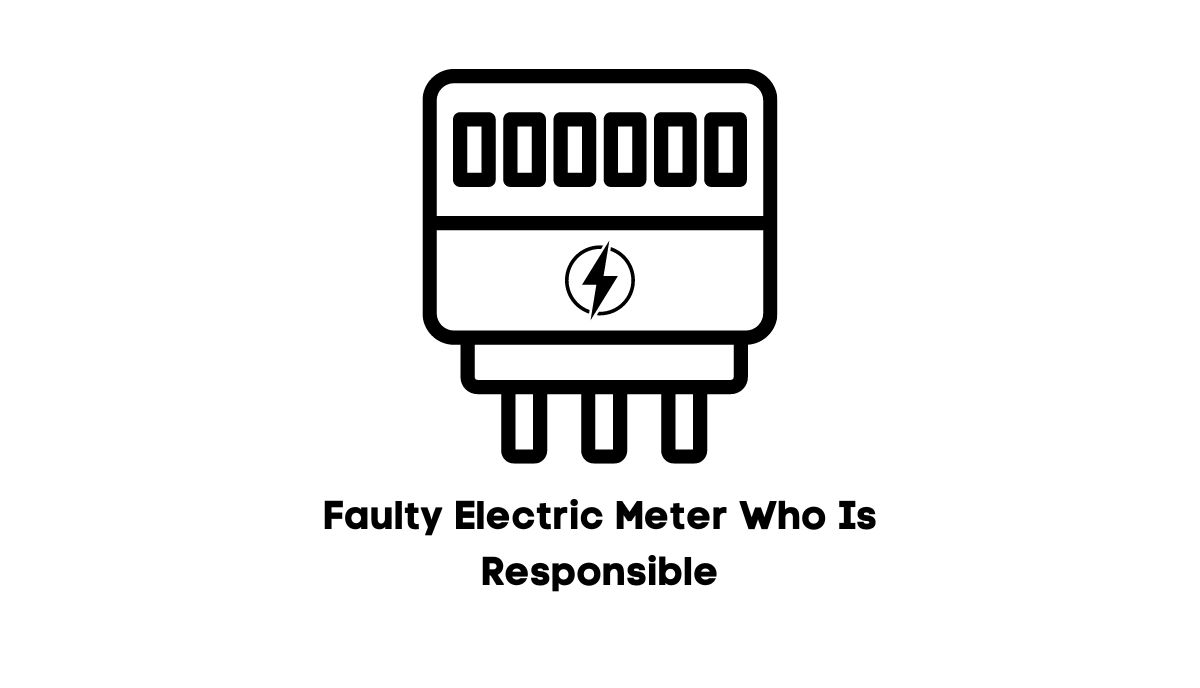Electric meters are tricky because they sit on your property, yet the energy company forbids you from tampering with them. Naturally, this creates confusion among consumers who don’t know what to do when an electric meter fails. The following will provide some much-needed clarity:
Who Owns The Electric Meter?
That sounds like an obvious question with a direct answer. Doesn’t the electric meter belong to the energy company? Not necessarily. Energy providers are wide-ranging. You have line companies, energy retailers, as well as independent metering companies.
In some cases, the entity that sends electricity to your home is not the same as the company that bills you every month. Who do you call when things go wrong? Ask these companies. Let them reveal the owner of the meter.
SO Energy in the United Kingdom has published a diagram explaining its responsibilities. It looks like the meter itself belongs to the firm, along with the meter tails. The main fuse and main service cables are the local DNO’s business, while the consumer unit tails and fuse board belong to the consumer. Most energy companies follow a similar pattern, and governments expect them to perform the following tasks:
- Install new meters.
- Read meters.
- Test meters.
- Replace non-compliant meters.
- Repair or replace faulty meters.
- Upgrade faulty meters.
But the exact entity responsible for each task will vary with each location.
What To Do With A Faulty Electric Meter?
Start by determining whether or not the electric meter is genuinely faulty. SSE Energy Services wants consumers to perform the following tests:
- Turn all the appliances off.
- Are the numbers on the meter still moving? Wait half an hour and check again. Record any changes you’ve noticed.
- If the meter is active even though you turned all the appliances off, activate the appliances one at a time and record the response on the meter. This stage allows you to identify a faulty appliance that may explain the high energy consumption you’ve noticed. This assumes that your meter is showing higher figures than usual.
- If the meter isn’t working, smart meter manuals mention diagnostic functions consumers can activate by pressing specific keys. The diagnostic functions reveal error codes, which, in turn, allow you to identify the defect.
If you’re sure your electric meter has a defect, call the energy company. They will send an expert to diagnose the device in due time. What if you think the readings on the meter are incorrect?
Don’t be so quick to assume that you’re paranoid. If you have doubts about your energy consumption and utility bills, many governments have mechanisms in place that allow laypeople to ask for an independent test of their meter.
This guide from the Office for Product Safety and Standards in the United Kingdom has published a set of procedures that consumers routinely follow when they notice questionable readings:
- You start by asking your energy provider for an independent test.
- The company will contact you to make an appointment for the test.
- The energy company doesn’t perform this test. Instead, they send an independent examiner. The expert will investigate the meter in your home before ultimately removing it and installing a replacement.
- Once the expert has completed additional tests at a laboratory, he will send a report to you and your energy supplier.
- If the meter no longer works within the legal limits, the energy provider will contact you with a solution.
- Naturally, you expect them to fix the meter. But you might be surprised to learn that an energy company can also compensate you for any extra money you paid because of a faulty meter that displayed higher readings. On the other hand, if the meter showed low readings, they may ask you to pay for the energy you used, which the meter failed to record.
Who Pays For Repairs When The Electric Meter Fails? The Energy Supplier Or The Consumer?
This is where complications arise. Technically, the energy supplier should pay for repairs and replacements. After all, they own the meter. However, This-In-Money published a story in April of 2023 highlighting several cases in which energy companies forced consumers to pay for dead meters.
In the article, Ofgem (a regulator in the United Kingdom) noted that energy suppliers were only obligated to meet the repair costs for smart meters that broke within the first twelve months. Once that period elapsed, electricity companies could choose to either fix these devices for free or charge consumers.
Unfortunately, many laypeople were unaware of this caveat in the rules. This should encourage you to revisit your energy supplier’s terms and conditions.
Can The Energy Company Refuse To Repair Or Replace A Faulty Electric Meter?

The electricity supplier will only cover the repair and replacement costs if an electric meter dies through no fault of your own. Otherwise, you will pay for the repairs if the meter fails because you tampered with it.
The energy supplier will look for obvious signs of tampering, such as broken wires. If the meter has a seal and you broke it, don’t be surprised if the company asks you to foot the bill.
What If The Energy Company Refuses To Attend To You?
You can’t trust the utility provider to do the right thing, and fortunately, you don’t have to. Consult the local authorities. More than likely, you will find that they’ve created a body that holds the energy provider accountable for their misdeeds.
The Complaints Expert has given the example of Energy Watch in the United Kingdom, which accepts complaints against supply companies. If Energy Watch fails you, try the Energy Supply ombudsman.
Energy suppliers are not all-powerful. Appeal to a higher power if you think your utility provider has abused its privileges. You can also seek legal counsel if you live on rented property and your landlord expects you to repair a defective electric meter.

